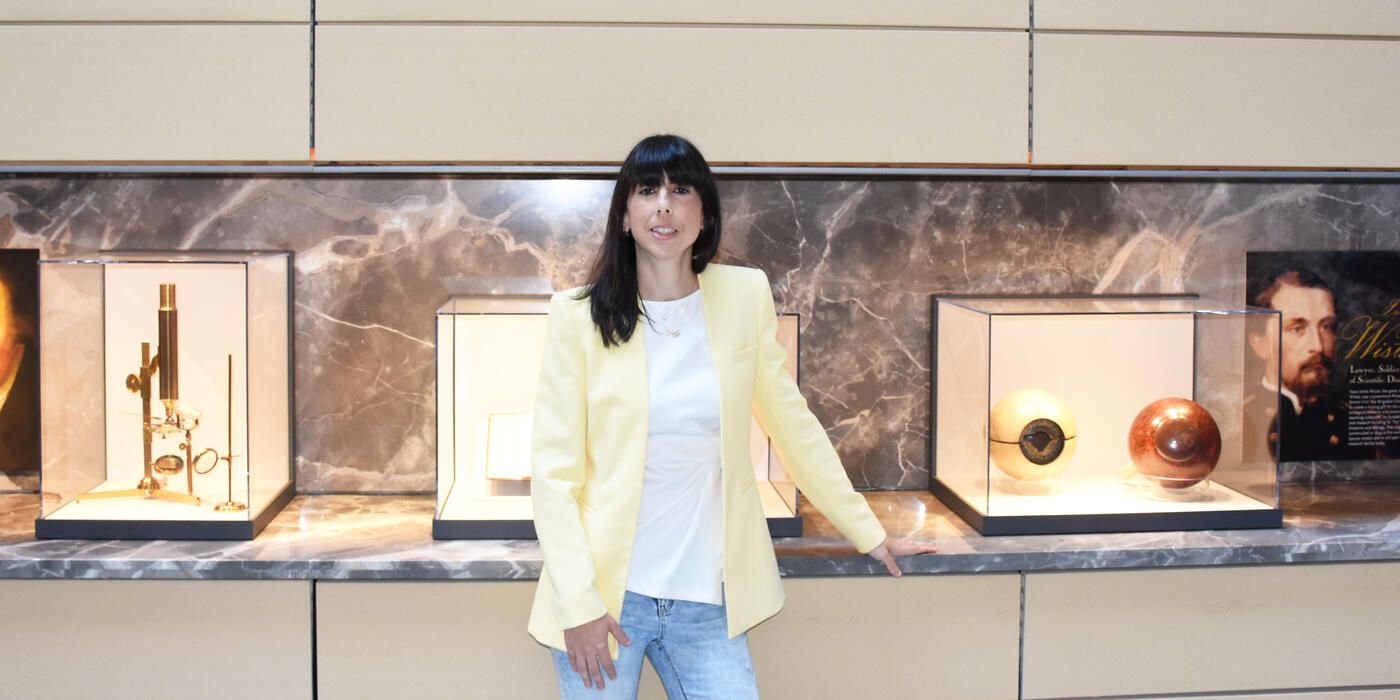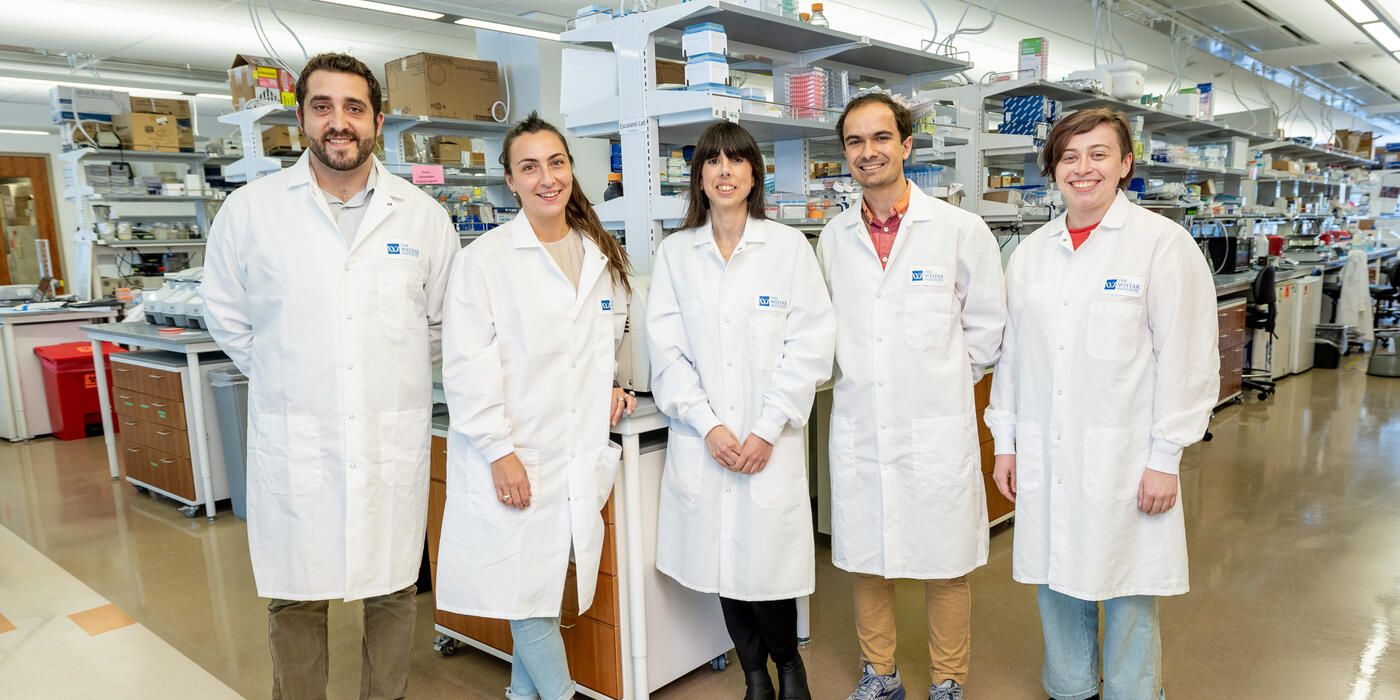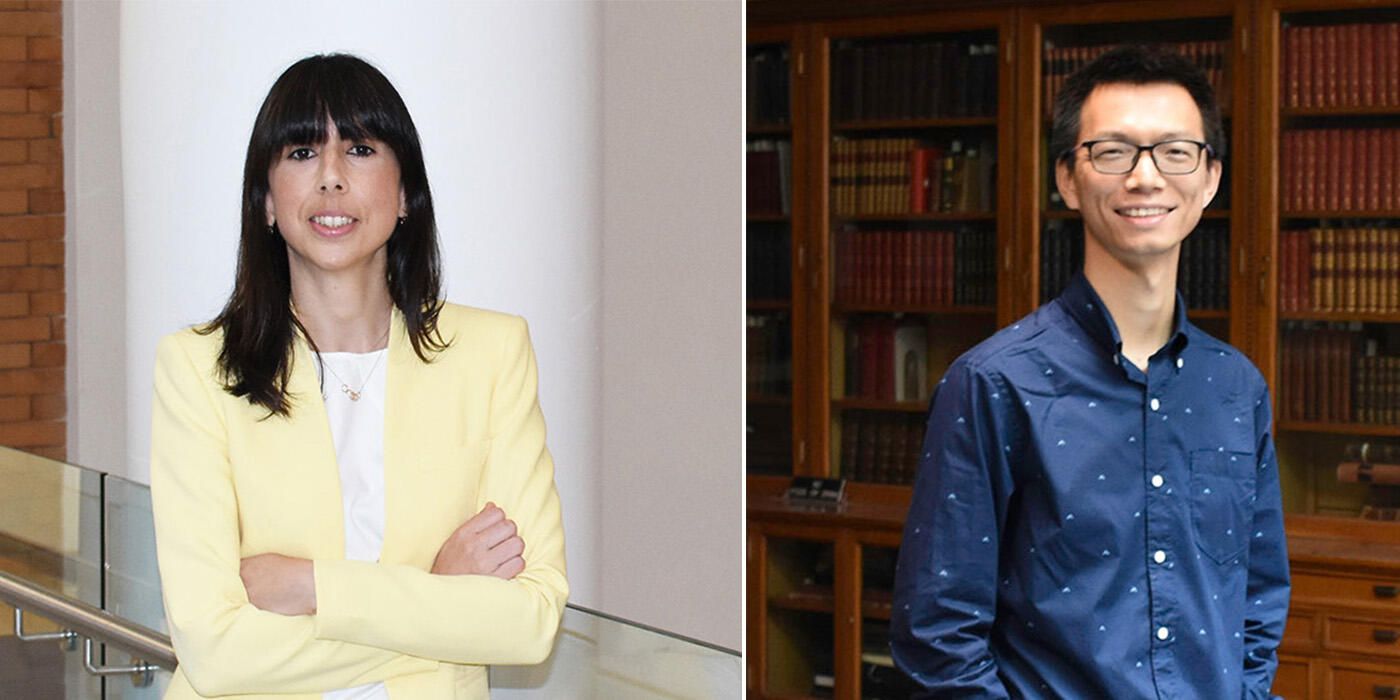How Does our Immune System Respond to Vaccines?
A Q&A with Wistar’s Dr. Amelia Escolano
What got you interested in immunology?
My interest in immunology started in college. I took several immunology courses, and I was particularly attracted by antibody biology. One of these courses was Immunotechnology, and I remember being fascinated by the immense potential of antibodies for immunotherapy development. This interest further developed during my Ph.D. studies, which focused on macrophages, a type of immune cell. I investigated the role of calcineurin, a phosphatase enzyme, in macrophage polarization. In other words, I studied how calcineurin determined the specific pro- or anti-immune functions of macrophages and how this could impact the progression and outcomes of inflammatory processes.
The immune system is immensely complex. It is a very sophisticated and orchestrated network of immune mediators that interact and influence each other to provide protection against pathogenic threats. We have so much to learn about the many different immune cells and the cellular and molecular mechanisms involved in immune responses; the complexity and ingenious mechanisms of the immune system make it a very exciting area of study.
In addition to my interest in shedding light on some aspects of the immune response, the fact that the implications of immune system research are so clearly beneficial to human health makes this area of research very attractive to me and my team.
Now, in your lab, you investigate the mechanisms governing the immune responses to vaccines. Very broadly, can you tell us about that work?
Our research revolves around vaccine design; that’s the goal that informs our approach. We are interested in understanding how B cells and T cells respond to vaccination so that we can leverage this information to design better vaccines. In particular, we study the process of antibody affinity maturation.
Affinity maturation is the process by which antibodies are produced and refined to target a specific antigen, a component of a pathogen that activates the immune system. Antibody affinity maturation takes place in the germinal centers, which are anatomical sites where B cells work with a certain kind of T cell called T follicular helper (Tfh) cells to iteratively refine and test their B cell receptors — otherwise known as antibodies. This process allows the immune system to improve its antibody responses.
With this process in mind, we aim to understand how a vaccine should be designed so that the elicited antibody response can efficiently prevent infectious diseases for long periods of time.
In my lab, we study the immune response to sequential immunization in the context of HIV-1. Sequential immunization is a novel form of vaccination that requires multiple boost immunizations with different but related viral proteins. In the case of HIV-1, sequential immunization involves multiple boost immunizations with different versions of the envelope protein of HIV-1.
Sequential immunization takes advantage of the antibody affinity maturation process with the ultimate goal of getting the immune system to produce high-quality antibodies that can fight complex, highly variable viruses like HIV.
We analyze how B cell populations and their antibodies evolve in response to sequential immunization, and we’re testing strategies to make that antibody affinity maturation more efficient by focusing on both B cells and T follicular helper cells.
Why is sequential immunization necessary against HIV-1?
To vaccinate effectively against HIV, we need B cells to produce what we call a broadly neutralizing antibody, or bNAb. bNAbs are rare antibodies that can neutralize multiple different variants of HIV-1, and we expect a vaccine that elicits bNabs to protect effectively against HIV-1.
Our previous work showed that repeated immunization with the same HIV-1 envelope protein was not capable of inducing bNAbs. Instead, sequential immunization efficiently induced antibodies that potently neutralized a large number of different HIV-1 variants.
In a sequential immunization protocol, we start with an engineered HIV-1 envelope immunogen, which is a term that we use to describe an antigen we’re testing as a vaccine candidate. The role of this first immunogen is to activate a rare subset of B cells that have receptors with the capacity to be refined into bNAbs. These B cells respond to this first immunogen and increase their affinity for it.
That increase in affinity for the first immunogen is associated with an increase in affinity for a slightly more complex HIV-1 envelope immunogen, which is then used for a second immunization. Sequential immunization repeats this process multiple times as a way of gradually increasing the affinity of B cells for the unmodified wild-type, or naturally occurring, HIV-1 envelope protein. We nudge B cells along to make sure that they mature in a way where they get progressively better at reacting to different HIV-1 strains.
How are you able to tell that your sequential vaccination protocol has produced a broadly neutralizing antibody? What do you look for?
We test our sequential immunization protocols by looking at blood after vaccination and running what’s called a serum neutralization assay. This assay can determine whether the mix of antibodies in the blood, elicited upon vaccination, can neutralize different HIV-1 strains. The number of different HIV-1 strains that the serum antibodies can neutralize determines the breadth of these antibodies. This assay also informs us of the potency of the antibodies to neutralize each HIV-1 strain.
In addition to these neutralization assays, we analyze B cells from lymph node tissue to see which antibodies they’re expressing. We are then able to evaluate individual antibodies for their capacity to neutralize HIV-1. These evaluations help us refine our vaccine candidates and sequential immunization protocols by showing us what’s working and what isn’t.
For how long has this immunology work been your focus?
I’ve been working on this approach for HIV vaccine development since I started my postdoctoral studies in the Nussenzweig laboratory at The Rockefeller University in 2014. Now, at The Wistar Institute, where I established my independent lab two years ago in September of 2021, my lab is expanding this research.
I came to The Wistar Institute with a vision of what I wanted my science to be, and Wistar has helped make that vision a reality. Here, I have found great colleagues, I have established fantastic collaborations both at Wistar and UPenn and I have seen my program grow exponentially. I’ve also found great opportunities to explore other research areas that have strengthened my program’s approach.
I find it hard to believe that two years have gone by already; the time has been both positive and productive. The welcome and support I’ve had at Wistar make me feel like a real part of a community. I can tell that all my Wistar colleagues — across the labs, across the departments — have an investment in seeing our science succeed.






